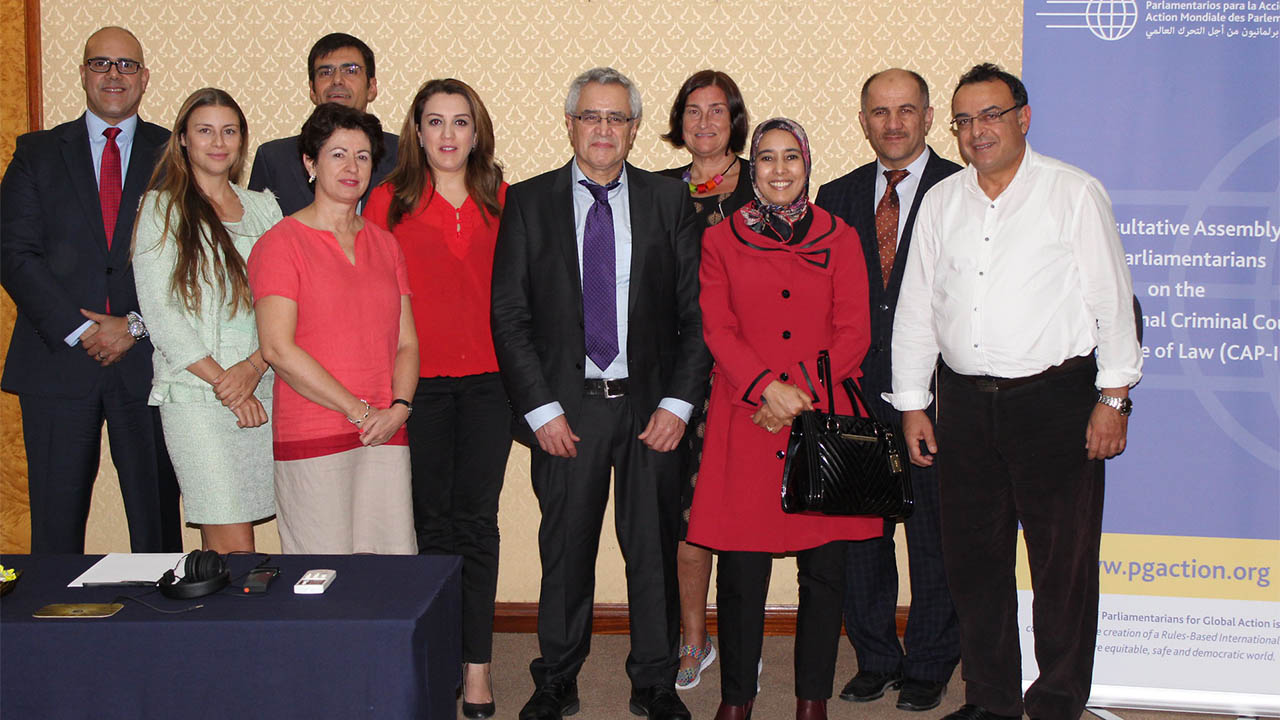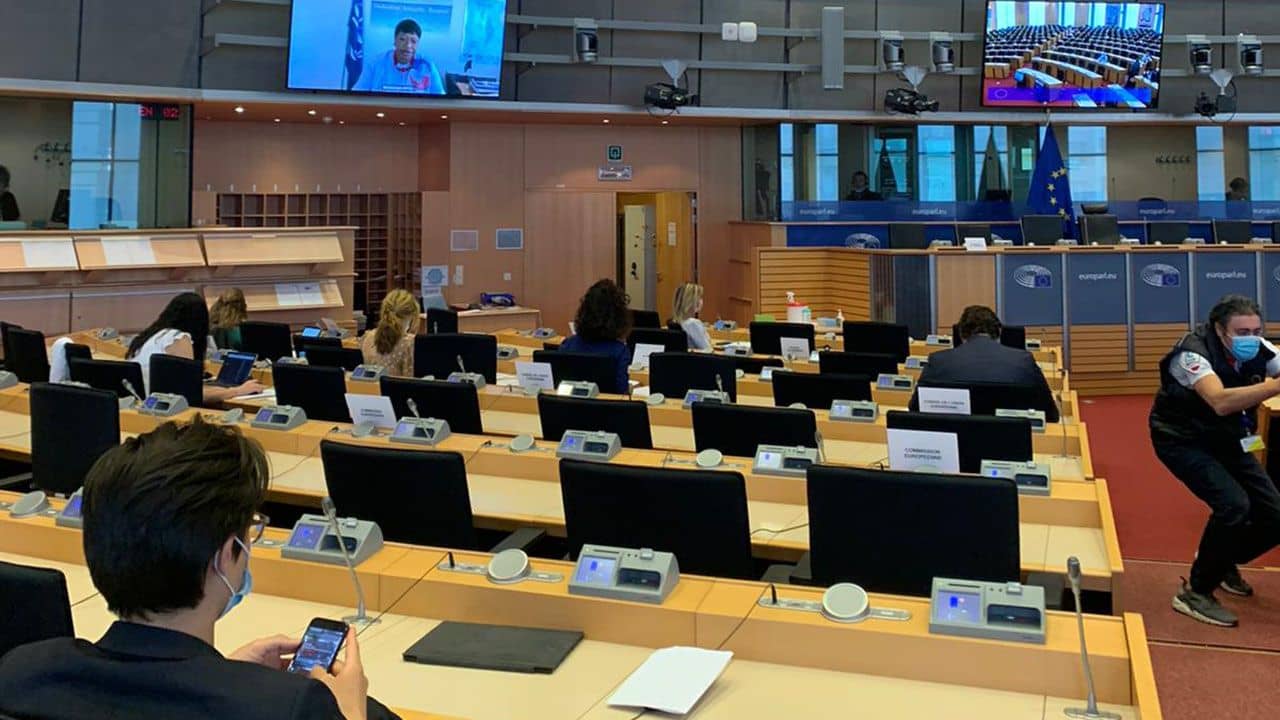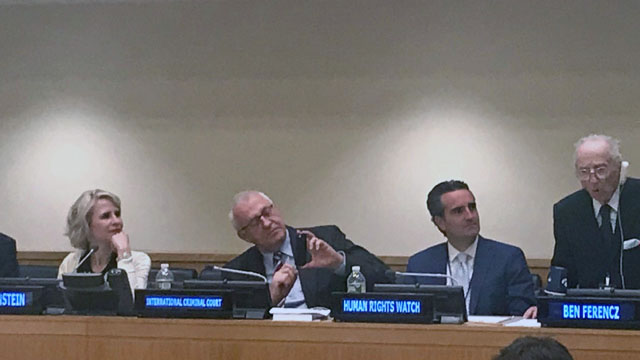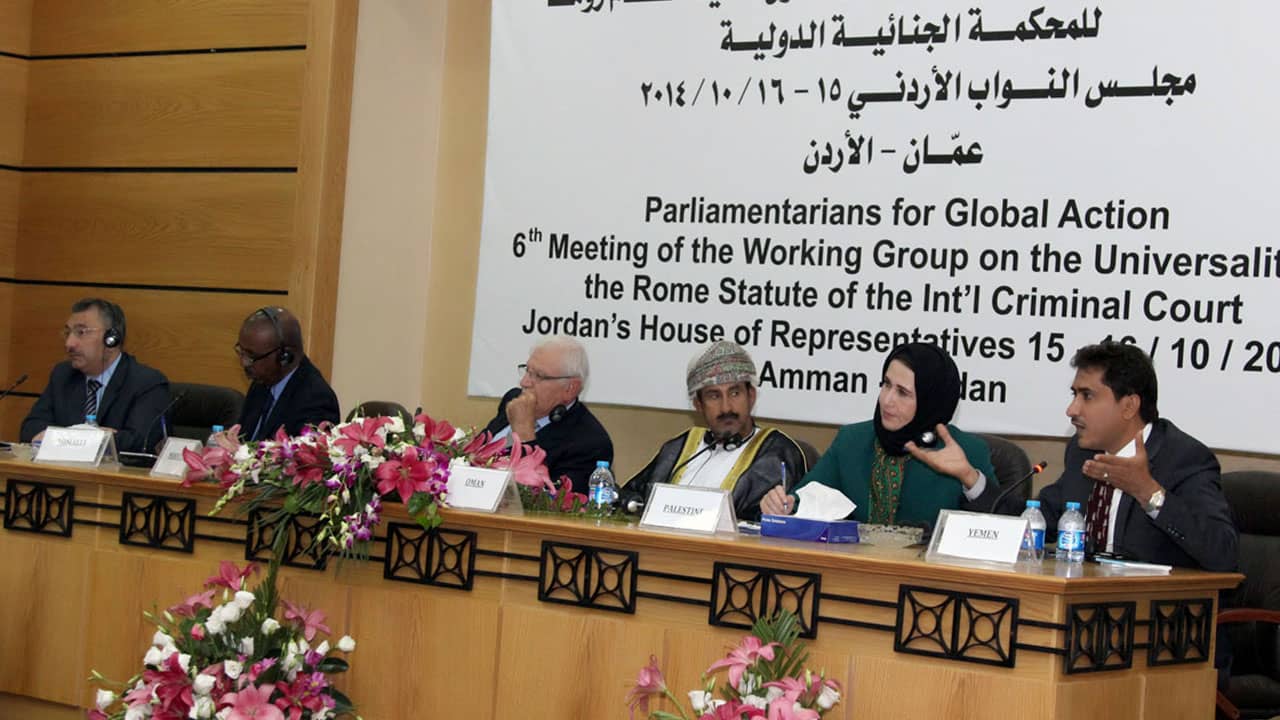In 2009, the Palestinian Authority government lodged a declaration under Article 12(3) of the Rome Statute allowing the International Criminal Court’s jurisdiction retrospectively for "acts committed on the territory of Palestine since July 1, 2002". Three years later, in April 2012, the ICC Prosecutor declined the possibility for Palestine to accept the Court’s jurisdiction due to the fact that Palestine could have not been considered a State for the purposes of the Rome Statute. The decision also referred to further developments that could have taken place within the legal frameworks of the depository of the treaty, the Organization of the United Nations, or eventually of the Court’s Assembly of States Parties.
On 1 January 2015, the Government of Palestine lodged another declaration under Article 12(3) of the Rome Statute, accepting the jurisdiction of the International Criminal Court (ICC) over alleged crimes committed "in the occupied Palestinian territory, including East Jerusalem, since June 13, 2014". This time, based on the United Nations General Assembly vote held on November 29, 2012, to admit Palestine as an Observer State to the UN, the ICC Prosecutor did accept the retrospective ad hoc jurisdiction over Palestinian territory and nationals.
Furthermore, Palestine deposited its instrument of accession with the UN Secretary-General on January 2, 2015. On January 6, 2015, the Secretary General of the United Nations, as depositary, took note of the accession of Palestine to the Rome Statute from January 2, 2015.
On January 16, 2015, the Prosecutor announced the opening of a preliminary examination into the situation in Palestine in order to establish whether the Rome Statute criteria for opening an investigation are met. The Prosecutor specified that this decision was taken as “a matter of policy”. Under Article 53(1) of the Rome Statute, the Prosecutor shall consider issues of jurisdiction, admissibility and the interests of justice in making this determination.
Rome Statute
Palestine acceded to the Rome Statute on January 2, 2015. The Rome Statute entered into force for Palestine on April 1, 2015, with prospective jurisdiction. The International Criminal Court (ICC) held a ceremony on the same date at the seat of the Court in The Hague (the Netherlands) to welcome Palestine as the 123rd State Party to the Rome Statute.
The Government of Palestine accepted, by means of a declaration under Article 12(3) of the Rome Statute, ad hoc ICC jurisdiction since June 13, 2014.
Kampala Amendments of 2010
Palestine has yet to ratify the Kampala amendments
Status on the domestic implementation of the Rome Statute
On January 16, 2015, the ICC prosecutor announced the opening of a preliminary examination into the situation in Palestine to determine whether there are sufficient grounds to proceed with a full investigation.
By accessing to the Rome Statute system, Palestine obliged itself to cooperate with the Court and its decisions, to incorporate Rome Statute crimes and general principle into domestic legislation, and to comply with the ICC prosecutor requests for information. Palestine is still to adopt a law on cooperation with the ICC. While the Palestinian Authority has unilaterally accepted to abide to the Geneva Conventions, which Palestine ratified in 2014 along with all its Protocols, the domestic implementation of Rome Statute crimes (genocide, crimes against humanity, war crimes and crime of aggression) appears incomplete or lacking. In 2014, Palestine also ratified the Genocide Convention, but no information on its domestic implementation is available from public sources.
Agreement on Privileges and Immunities of the Court (APIC)
Palestine acceded to the Agreement on Privileges and Immunities of the Court (APIC) on 2 January 2015.
Additional Relevant Information
Palestine is a member of the League of Arab States.
As far as the European Union’s and EU Member States’ position on Palestine and the ICC is concerned, we hereby reproduce the following materials: Answer given by High Representative/Vice-President Mogherini on behalf of the European Commission on ‘the VP/HR – EU-ICC Action Plan: monitoring of investigations conducted by Israel and Palestine’, June 19, 2015:
“The EU has taken note of the decision of the ICC Prosecutor to open a preliminary examination of the situation in Palestine. The ICC and its Prosecutor are independent and impartial judicial institutions. ICC proceedings are legal processes that should be allowed to run their course without political interference. Indeed, the EU and its Member States are staunch supporters of the Court and its independence. While the ICC has developed into a key instrument in combatting impunity, preventing future crimes and promoting international order based on the rule of law, Rome Statute States Parties must develop their domestic capacity to hold accountable those responsible for the most serious international crimes and to prevent impunity gaps. The ICC is a court of last resort, complementing national jurisdictions. Relevant matters such as due judicial process and accountability by Israeli or Palestinian authorities are raised by the EEAS in its bilateral dialogues, meetings with Israeli and Palestinian Authorities, in particular in Human Rights and political dialogues to which Member States are invited to attend. The EEAS remains at the disposal of the European Parliament and its Members for further information.”
In response to a written question by a Swedish MP, Swedish MFA Wallstrom welcomed Palestine’s accession to the RS and urged all parties concerned to cooperate with the Court (10 June 2015)
Answer given by High Representative/Vice-President Mogherini on behalf of the EU Commission on the VP/HR – Statement by the VP-HR on Palestine’s ratification of the Rome Statue of the International Criminal Court on the 28 May 2015:
“The VP/HR statement of January 6 was mainly concerned with the decision of the Israeli government to halt transfer of tax revenues to the Palestinian Authority. In this context, it called on both parties to play a constructive role in view of an urgent resumption of negotiations. The EU has taken note of the Palestinian accession to the Rome Statute of International Criminal Court and, together with its member States, remains a staunch supporter of the ICC. The EU continues being strongly committed to preserving the independence of the ICC and to promoting the universality and integrity of the Rome Statute. The EU remains convinced that a just comprehensive solution to the Israeli-Palestinian conflict can only stem from credible political negotiations between the parties and will continue to do it’s outmost to support them in their efforts to this end.”
Answer given by High Representative/Vice-President Mogherini on behalf of the Commission on the 17 March 2015:
The EU supports the UN system, the widest application of its multilateral conventions as well as the widest possible participation in the Rome Statute. We have taken note of the Palestinian accession to the Rome Statute of the International Criminal Court and to the Agreement on the Privileges and Immunities of the International Criminal Court (APIC). The Court is an independent, permanent court; and its proceedings are legal processes that should be allowed to run their course. The EU has consistently called for both parties to refrain from any unilateral actions and resume direct negotiations towards a peace settlement based on the two state solution, and has called on the Palestinian leadership to use its international status constructively and not to weaken efforts by partners to bring the parties back to the negotiating table.
Related links:
Open Society Foundation: An ICC Investigation of Possible War Crimes in Palestine Could Benefit All Involved (25 June 2015)
United Nations independent inquiry in 2014 Gaza-conflict report by Office of the High Commissioner for Human Rights (22 June 2015)










